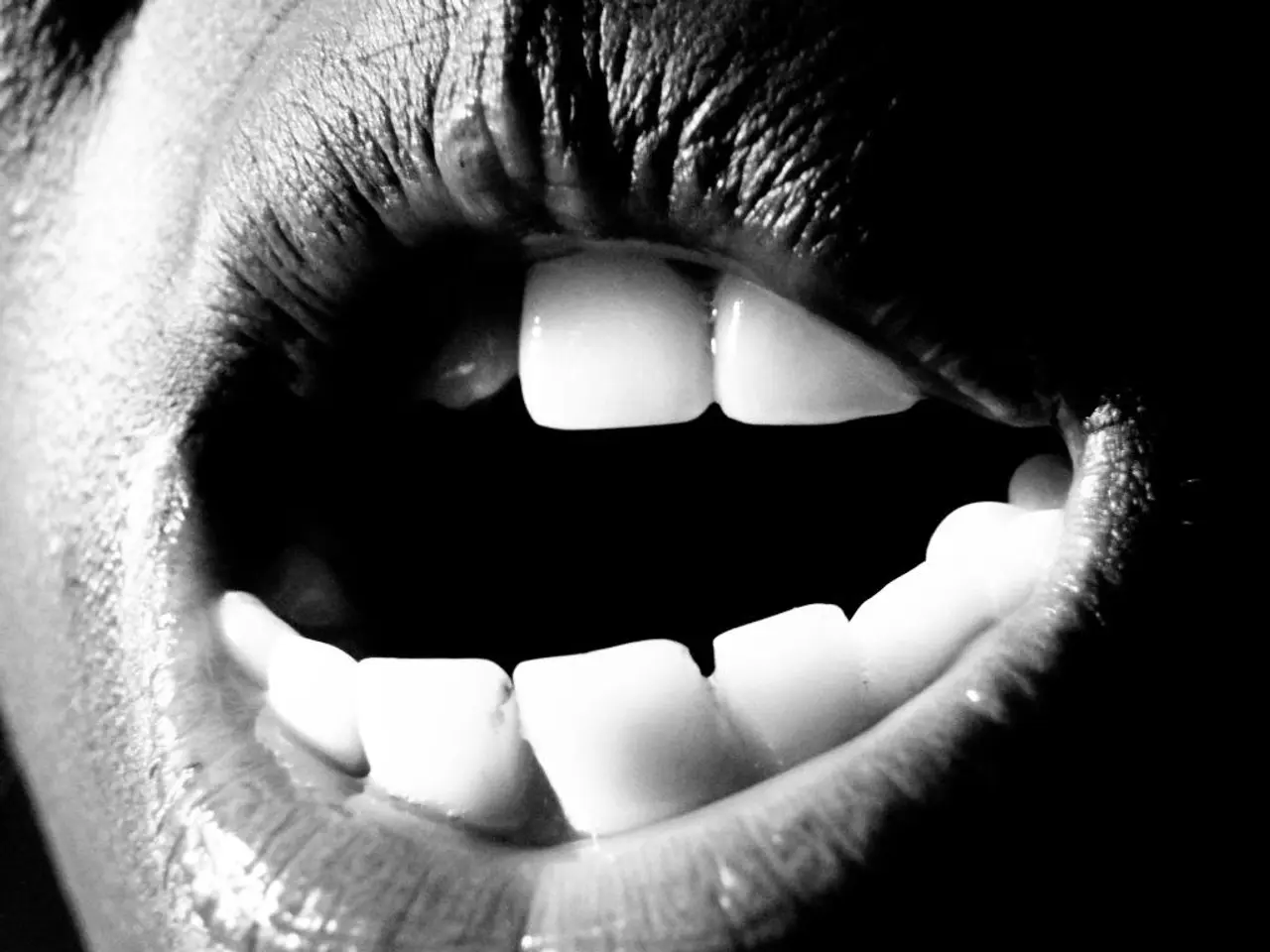Considering Jaw Pain? Exploring the Possibility of a Dental Mouthguard?
In the battle against teeth grinding (bruxism) and temporomandibular joint (TMJ) disorders, dental mouthguards have proven to be a valuable ally. These protective devices, also known as splints, oral appliances, or night guards, can provide relief from the pain and damage caused by these conditions.
When it comes to selecting the right mouthguard, there are two main options: custom-made and over-the-counter. Each has its own advantages and disadvantages, and understanding these differences is crucial in making an informed decision.
Custom-made mouthguards are precisely moulded to the unique shape of your teeth using dental impressions taken at home or at a dentist’s office. They are typically made from durable materials like hard acrylic, offering strong protection, especially for severe grinding or clenching cases. The superior fit and comfort provided by custom mouthguards often result in reduced jaw muscle strain and alleviated TMJ symptoms by distributing pressure evenly. Options range from thinner guards for light grinders to thicker, sturdier ones for heavy grinders, with a thickness between 1mm and 3mm being optimal.
On the other hand, over-the-counter mouthguards are more affordable but provide a less precise fit. These are usually boil-and-bite types that soften when heated, allowing you to mold them somewhat at home. However, because they don’t conform exactly to your bite, they may cause jaw strain or discomfort if too thick or ill-fitting.
For those suffering from mild to moderate teeth grinding, an over-the-counter boil-and-bite guard may suffice as a starting point. However, for severe bruxism or TMJ disorders, a custom-made guard is the best option, providing optimal protection, comfort, and symptom relief.
When considering TMJ disorders, it’s essential to be mindful of the thickness of the guard, as the wrong fit or thickness can worsen jaw pain. Custom-made guards are preferable for TMJ because they are designed to avoid putting undue stress on the joint and accommodate your jaw’s movements better.
In summary, custom-made mouthguards offer superior benefits for both bruxism and TMJ disorders due to their precise fit and durable materials, outweighing the initial cost compared to over-the-counter alternatives, which may be better suited for milder cases or temporary use.
It is always recommended to consult a dental professional to evaluate severity and get guidance on the best option for your specific needs. Regular dental check-ups are also important to ensure the mouthguard is still fitting well, the bite is correct, and there are no signs of wear or damage.
In conclusion, dental mouthguards can protect your teeth, joints, and help ease the pain caused by bruxism and TMJ disorders. By choosing the right mouthguard, you can ensure that you receive the best possible relief and protection.
- For severe grinding or clenching cases, custom-made mouthguards, crafted from hard acrylic, offer strong protection and superior fit, providing reduced jaw muscle strain and alleviated TMJ symptoms.
- Over-the-counter mouthguards are more affordable but provide a less precise fit, with the softening and molding process causing them to potentially be too thick or ill-fitting, leading to jaw strain or discomfort.
- Custom-made guards are preferable for TMJ because they can be designed to avoid putting undue stress on the joint and accommodate your jaw’s movements better, thus being more suitable for managing TMJ disorders.
- In addition to dental mouthguards, health and wellness, fitness and exercise, mental health, nutrition, therapies and treatments, such as CBD, and sports all play a significant role in maintaining overall health.
- When considering your specific needs, it is important to consult with a dental professional to evaluate the severity of your condition and receive guidance on whether a custom-made guard or an over-the-counter alternative would be best for you.
- Regular dental check-ups are essential to ensure the continued fitting of the mouthguard, verify correct bite alignment, and monitor for signs of wear or damage, maintaining your overall dental health and well-being.






